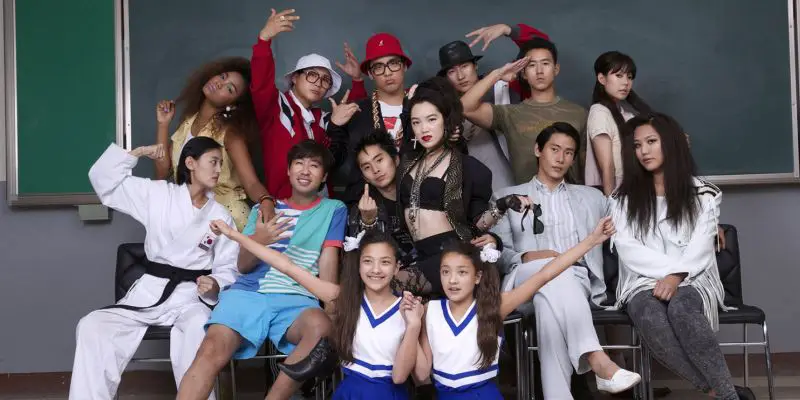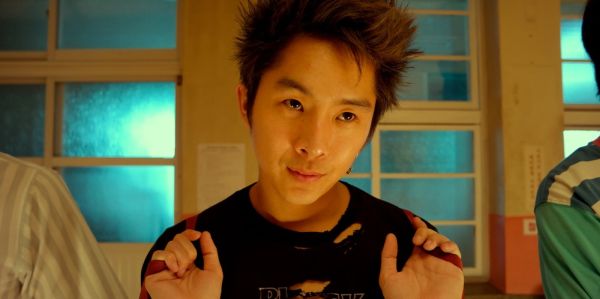SEOUL SEARCHING: A Love Letter To John Hughes

Even though she shares her name with two famous singers,…
Growing up as a first generation Asian American, I looked to television and cinema for hints to “fit in” with all the other Americans, to improve my grammar and English, to embrace the idea of being American. In that transition, I severed some of my Filipino roots. I can understand Tagalog, but I can’t speak it. I switched from watching Filipino melodramas to American cartoons years ago. From time to time, people will ask me “where I’m from” and when I say “New Jersey,” they raise their eyebrows and then follow up with, “where are your parents from,” as if that would explain everything—who I am, what I’ve experienced, how I view the world.
Seoul Searching captures the dissonance of first generation Korean-American teenagers fully adapted to the culture they grew up in to escape the aftermath of the Korean War. Based on the experiences of writer and director, Benson Lee, Seoul Searching is set in 1986 and revolves around a group of teenage misfits shipped from all around the world to a government-sponsored summer camp in Seoul, South Korea, expected to connect them to their heritage.
A love letter to John Hughes’ The Breakfast Club, Seoul Searching is a coming-of-age homage to the 80s. It captures what it feels to be caught between two cultures, two identities that conflict with one another and the desperation to find oneself.
A Suitcase and a Dream
As The Clash’s “Should I Stay or Should I Go” plays in the background, the film introduces us to the camp attendees, who walk through airport doors, each embracing some teenage stereotype ranging from punk rock to military brat to prep. Within the first half hour of the film, the group of hormonal teenagers begin to wreck havoc by sneaking into each other’s rooms, drinking and, in typical teenage fashion, become interested in the other sex.

Like its campers, the film is sometimes all over the place, trying to capture the whirlwind of a summer of discovery and entertainment through its various characters. Cringe-worthy moments, such as a make-out scene between two of the main characters, make it difficult to watch sometimes, reminding us of the naivete of teenagers.
However, it’s not until an hour into the film that you get a sense of these characters and their struggle with their identity. As the boisterous nature of these new campers calms down, hints of their backgrounds comes forward, especially when asked their personal thoughts on what it mean to be Korean.
To some, it’s the great tragedy of the division of North and South Korea that their parents taught them. To one kid, it’s hatred against the Japanese for what they did to South Korea and “teaching them a lesson.” To others, they’ve never thought of it before. Although all the characters would never choose to be in the same room as the others, they are there for the same reason—to explore their roots.

As the film progresses, they break out of their stereotypes and become more understanding of the culture their parents grew up in, which was once so alienating to them. Honesty shines through these characters and, despite being actors, it becomes clear that they empathize with their characters and their struggle to find their identity. Instead of being a comedy about some reckless teens, the film changes into a discovery of what it means to be Korean, despite growing up so far from their roots.
What Does It Mean to be Asian?
Even though Asian Americans total about 5.6% of the population, they are vastly underrepresented in films and TV shows and, when they do appear, are often caricatures or one-dimensional characters that are only there to support the protagonist. Lee, who grew up appreciating John Hughes’ films and drew inspiration from The Breakfast Club, however, did not appreciate the portrayal of Asians in Hughes’ films. Unable to relate to the Asian stereotypes in the films he watched, Lee sought to create a movie with a diverse cast.
As a teenager myself, I sympathized with the teens in Rebel Without a Cause and The Breakfast Club. After being misunderstood by adults, it was comforting to see a film that sought to understand these teens, to treat them like human beings. However, there was never a character that struggled with being a first generation Asian American, along with everything else that was difficult about being a teen.

Seoul Searching was comforting. Watching these teens navigating the country their ancestors grew up, but feeling so lost and disconnected touched me. I’ve gone through the guilt of feeling that I’m a dishonor to my country because I don’t know any of the history about it, besides the couple of sentences and footnotes in American history textbooks.
I felt the disgrace of not being able to communicate in my own people’s language and try to communicate through broken English and broken sentences to get my point across, while swallowing my embarrassment. I’ve cried because I feel like I can’t live up to my mother’s expectations and make her proud, especially after everything she’s sacrificed to give my sisters and I better lives in a new country.
All of those emotions I’ve experienced were expressed in one way or another in Seoul Searching. Watching them being portrayed helped me realize that these feelings were common, that I was not alone and neither were other first generation teenagers.
Conclusion
Seoul Searching provides what it offers in its title: the chance to reconnect with other lost souls, those who are stuck in the limbo between the culture of their parents and the culture they grew up in. Lee not only tackles the rebelliousness of youth, but the quest for finding one’s identity.
[easy-tweet tweet=”The search for a film accurately portraying Asian Americans’ struggle ends with SEOUL SEARCHING” user=”FilmInquiry” usehashtags=”no” template=”light”]Although the film takes place over 30 years ago, the themes of feeling isolated from your country and roots are even more prevalent in today’s youth. After years of searching for a film that accurately portrays the struggle of Asian Americans, the search ends with this film.
Why does most films still fail to reflect the diversity of the U.S.? How can we make the film industry more diverse? What do diverse films bring to the table? What films have you empathized with?
Seoul Searching is out now in the U.S. Find international release dates are here.
https://youtu.be/JhHJCDNDPxQ
Does content like this matter to you?
Become a Member and support film journalism. Unlock access to all of Film Inquiry`s great articles. Join a community of like-minded readers who are passionate about cinema - get access to our private members Network, give back to independent filmmakers, and more.
Even though she shares her name with two famous singers, Ciara "Cher" Lalo can't sing a tune to save her life but enjoys escaping rooms and passing as an film and art student at Syracuse University. Yes, she does believe in life after love.












